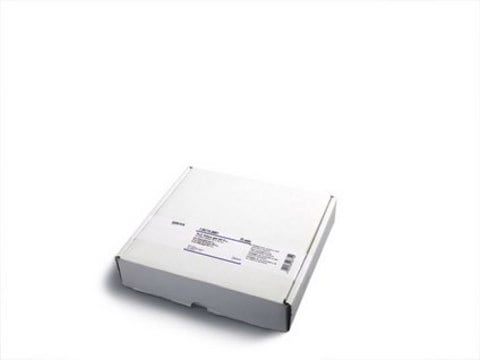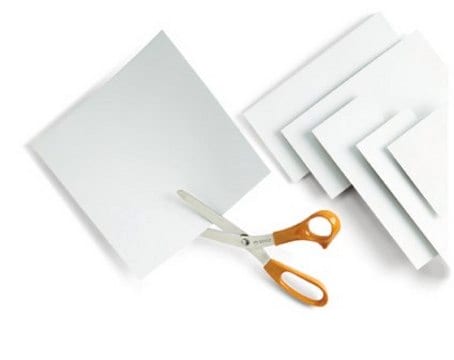1.13124
HPTLC Silica gel 60 RP-18 WF₂₅₄s
pkg of 25 plates, plate L × W 10 cm × 10 cm, glass support
Zaloguj sięWyświetlanie cen organizacyjnych i kontraktowych
About This Item
Polecane produkty
Materiały
glass support
silica gel 60 matrix
Poziom jakości
Właściwości
binder Organic Polymer
fluorescent indicator
opakowanie
pkg of 25 plates
metody
thin layer chromatography (TLC): suitable
grubość warstwy
200 μm
płytka dł. × szer.
10 cm × 10 cm
wielkość cząstki
5-6 μm
wielkość porów
60 Å medium pore diameter
temp. przechowywania
2-30°C
Opis ogólny
25 Glass plates 10 x 10 cm
RP modified plates serve two purposes: act as a pilot method for HPLC and allow to choose various solvent system for special separations. Our RP-modified silica layers are well suited for many separation challenges that unmodified silica cannot overcome. These layers use aqueous solvent systems to separate extremely non-polar substances and analyze particular polar substances that can adapt to ion-pair chromatography. What’s more, RP-modified silica layers are less dependent on atmospheric humidity. Unlike unmodified silica, RP-phases do not exhibit catalytic activity. This makes them the plates of choice for unstable substance that tend to experience oxidative degradation.
Powiązanie
Replaces: 13124-1; 13124
Komentarz do analizy
Specific surface area (according to BET; 5-Pt. measurement): 480 - 540 m²/g
Pore volume (N₂-isotherm): 0.74 - 0.84 ml/g
Layer thickness: 150 - 200 µm
d 50 (laser diffraction, size distribution): 5 - 7 µm
Deviation of layer thickness per plate: ≤ 35 µm
Chromatographic testing
hRf-values (cholesterin, cholesterin test): 54 - 66
Pore volume (N₂-isotherm): 0.74 - 0.84 ml/g
Layer thickness: 150 - 200 µm
d 50 (laser diffraction, size distribution): 5 - 7 µm
Deviation of layer thickness per plate: ≤ 35 µm
Chromatographic testing
hRf-values (cholesterin, cholesterin test): 54 - 66
Ta strona może zawierać tekst przetłumaczony maszynowo.
Certyfikaty analizy (CoA)
Poszukaj Certyfikaty analizy (CoA), wpisując numer partii/serii produktów. Numery serii i partii można znaleźć na etykiecie produktu po słowach „seria” lub „partia”.
Masz już ten produkt?
Dokumenty związane z niedawno zakupionymi produktami zostały zamieszczone w Bibliotece dokumentów.
Nasz zespół naukowców ma doświadczenie we wszystkich obszarach badań, w tym w naukach przyrodniczych, materiałoznawstwie, syntezie chemicznej, chromatografii, analityce i wielu innych dziedzinach.
Skontaktuj się z zespołem ds. pomocy technicznej

